Welcome, Nathan Miller!
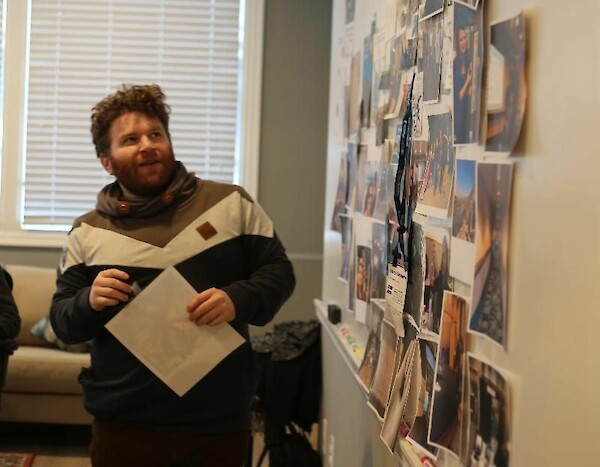
Nathan Miller recently joined IAN as a Science Communicator. Nathan studied Film & Television at NYU, Env. Biology at Columbia, and Env. Management at Duke. Nathan wants to use his education to learn how to make complex environmental research more relevant to resource users and policy makers through creative storytelling strategies
IAN attended Horn Point Laboratory's Open House
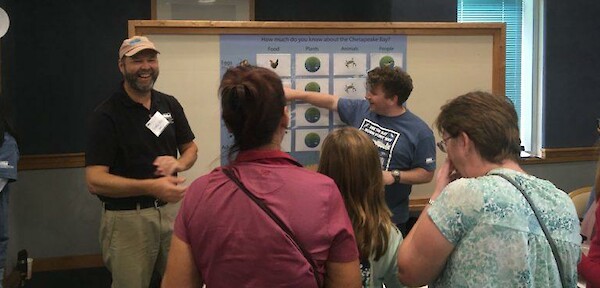
UMCES's Horn Point Laboratory hosted its annual open house, in which hundreds of visitors were given the opportunity to tour parts of the lab, such as the oyster hatchery and the research vessel Rachel Carson, and interact with HPL staff and students. IAN had a booth at the Open House, where we showed visitors some of our report card and graphic design products, and challenged them to test their knowledge of Chesapeake Bay ecology in our quiz game. Topics covered by the game included runoff, TMDL, SAV recovery, and bacterial contamination. IAN staff members Nathan Miller, Annie Carew, Max Hermanson, Heath Kelsey, and Bill Dennison took turns manning the booth and interacting with HPL visitors of all ages. You can read more about our Open House experience in a blog post written by Nathan Miller.
Atlantic Coral Reef Status Reports
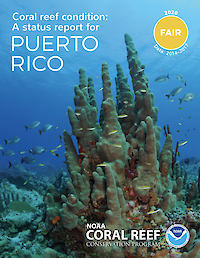
Separate reports were published for each U.S. Atlantic reef: Florida, Flower Garden Banks, Puerto Rico, and U.S. Virgin Islands. Reef status ranged from good to impaired.
National Coral Report

Years in the making, Coral reef condition: a status report for U.S. Coral Reefs synthesizes data to determine the health of Pacific and Atlantic coral reefs. Nine jurisdiction-specific coral status reports were published prior to this national report. For more information, visit the Coral Reef Information System or our reef project page.
Communicating the benefits of a Water Quality Trading Program

Last fall, IAN collaborated with the Maryland Department of Environment (MDE) to generate a series of communications products that promote the department's Water Quality Trading Program. This program is designed to allow Marylanders to buy and sell water quality credits across the state as a means to both reduce pollution in the Chesapeake and build capital for local businesses. IAN produced a newsletter about the trading program and a storymap for the MDE website, which will be live soon.
Creating a resilient river report card and scenario model for the Upper Rio Grande
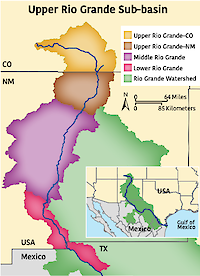
The first stakeholder workshop to develop an eco-health report card and scenario model for the Upper Rio Grande occurred in late 2020. More than 50 diverse stakeholders from government, the private sector, academic institutions, irrigation districts, and indigenous communities participated. This newsletter describes the outcomes of the workshop.
U.S. Coral Reefs are in fair condition, but vulnerable to further decline
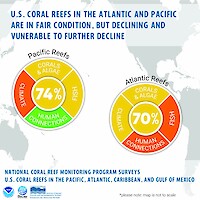
On November 10th, IAN held a press event with NOAA'S Coral Reef Conservation Program to launch the national coral reef status report. Years in the making, Coral reef condition: a status report for U.S. Coral Reefs synthesizes data from four categories (corals & algae, fish, climate, and human connections) to determine the health of Pacific and Atlantic coral reefs. The report is designed to be accessible for the general public and policy makers, utilizing color-rich visuals and descriptive text. Nine jurisdiction-specific coral status reports were published prior to this national report. For more information, visit the Coral Reef Information System or our reef project page.
IAN provides remote science communication course to IMET summer interns
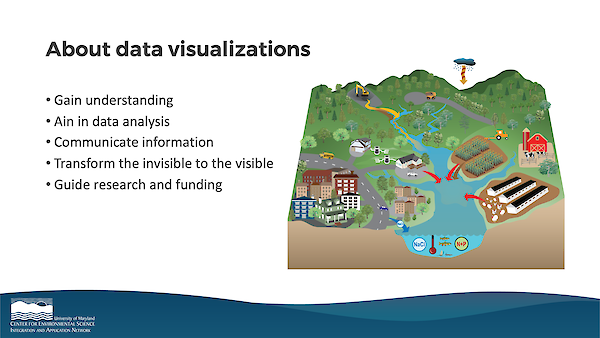
Annie Carew, Emily Nastase, and Nathan Miller taught an introductory science communication course for this year's IMET summer interns. While the ongoing COVID-19 pandemic has kept them from coming to IMET for the season, the interns will work together to analyze microbial data specific to Baltimore Harbor. The science communication course included storytelling strategies, designing theme statements, and a crash course in Adobe's Creative Cloud products, providing tools that the interns will use to promote their research this summer.
Preparing for the Rivanna Report Card
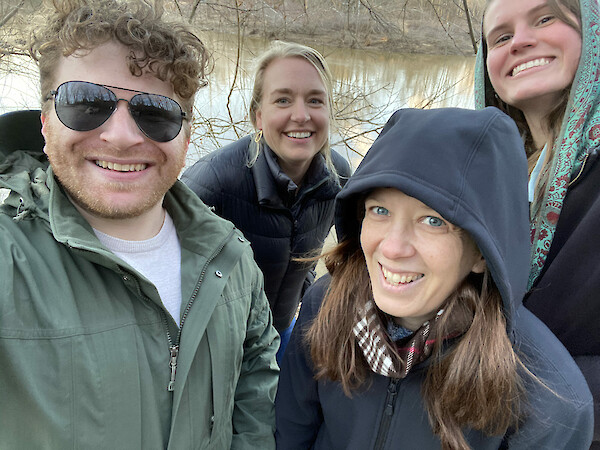
Caroline Donovan and Nathan Miller met with Rivanna Conservation Alliance staff members in Charlottesville, VA for a report card workshop. The creation of highly engaging and data-driven communications products are key to the Rivanna Conservation Alliance's mission to inform the public about regional water quality and macroinvertebrate populations, using years of data from over 50 monitoring stations. Workshop attendees reviewed the process of data analysis for report cards as well as design and content strategies. Stay tuned for more information!
A successful, virtual National Monitoring Conference

The CMC project team attended the virtual National Monitoring Conference in April. The one-week virtual event brought together practitioners from federal, state, and volunteer monitoring organizations to share knowledge about monitoring across the U.S. The CMC presented on the Hack the Bay and provided a Data Interpretation workshop at the conference. The image (above) is from the panel discussion in the session “Building Credibility in Community-based Monitoring Programs,” with Julie Vastine from ALLARM facilitating the discussion and Liz Chudoba, the CMC Project Manager, presenting on the CMC Hackathon.
Teaching stakeholder engagement in a virtual setting
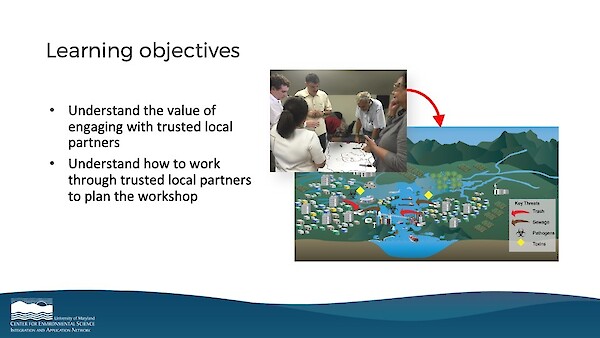
Last month, IAN led a two-week course for students in the University of South Carolina Oceans and Human Health (USC-OHH) program. Integrating online video lessons and daily class discussions (held over Zoom), IAN Director Dr. Heath Kelsey facilitated a class that discusses the value of stakeholder engagement in environmental decision-making. Dr. Kelsey has previously worked with PhD students in the USC-OHH program. Through this course, IAN staff provided students with the knowledge and insight needed to facilitate work with impacted communities and positively effect environmental change.
Teaching summer scicomm courses
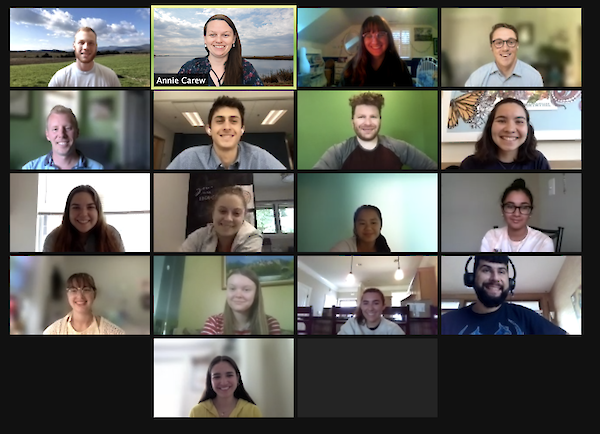
This month, some of our science communicators (aka scicommers) taught multiple virtual classes to summer interns at IMET and Maryland Sea Grant. Each course consisted of two sessions focused on the basics of scicomm, principles of design, and an introduction to Adobe Creative software.
We like to emphasize the importance of science as storytelling. No matter your system, experiment, or situation, there is an intrinsic narrative that you can use to make your science engaging to any audience. Finding the narrative, and tailoring it to your audience, is the basis of good science communication. We use tools like ABT statements (And, But, Therefore) and conceptual diagrams to communicate science to a variety of audiences, and it is always enjoyable for us to pass on those skills to younger scientists.
We thoroughly enjoyed our students this summer, and we wish them luck in the rest of their internships!
Maryland Coastal Bays Report Card published
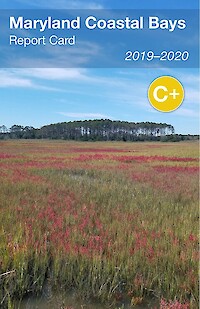
The MD Coastal Bays Report Card was released in Ocean City, MD on October 13, 2021. The aim of this report card is to provide a transparent, timely, and geographically detailed assessment of 2019–2020 Coastal Bays health. Coastal Bays health is defined as the progress of four water quality indicators (total nitrogen, total phosphorus, chlorophyll a, dissolved oxygen) and two biotic indicators (seagrass, hard clams) toward scientifically derived ecological thresholds or goals. The six indicators are combined into one overarching Coastal Bays Health Index, which is presented as the report card score. The overall score for the Coastal Bays was a C+ for the 2019-2020 reporting cycle. This was a decrease from the last full year of data in 2017.
We were at the Inclusive Scicomm Symposium
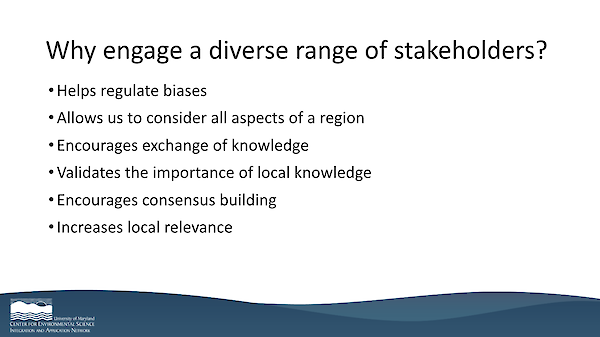
IAN science communicators Nathan Miller and Annie Carew presented at the Inclusive SciComm Symposium, hosted by the University of Rhode Island's Metcalf Institute. "Inclusive science communication, or inclusive scicomm, is a global movement to shift the traditional paradigm of science communication toward an approach that centers inclusion, equity, and intersectionality. Although a growing number of people are committing themselves to inclusive scicomm, this movement is in its early stages, and is evolving rapidly." (The Metcalf Institute)
Nathan and Annie gave a presentation focused on the importance of equity in stakeholder engagement, and showed participants how to use stakeholder mapping to ensure inclusive engagement. We at IAN believe strongly that every voice deserves to be heard, and effective environmental decisions cannot be made without representation from all members of a community.
Coming soon: Upper Rio Grande Report Card
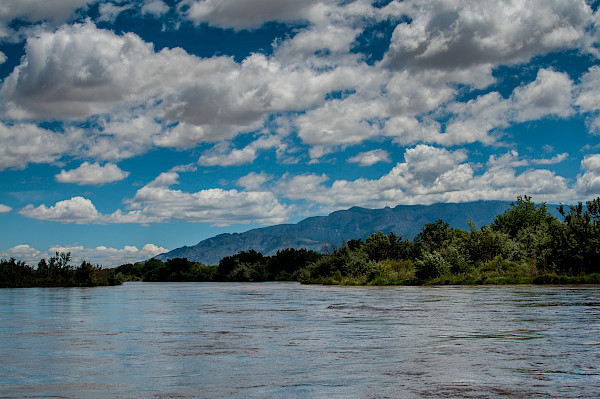
Next month, IAN and its partners will release the first iteration of an ecosystem health report card for the Upper Rio Grande. The report card publication will be the culmination of over two years of hard work, with dedicated teams from WWF, Audubon New Mexico, University of Massachusetts Amherst, and IAN collaborating with stakeholders to gather relevant socio-environmental data relevant to this historic watershed. The report card itself provides a present-day snapshot of Rio Grande from its headwaters in Colorado to just south of El Paso, Texas. It is our hope that this report card is the first of a series of publications that will eventually cover the entire length of the Rio Grande.
IAN at the HPL Open House
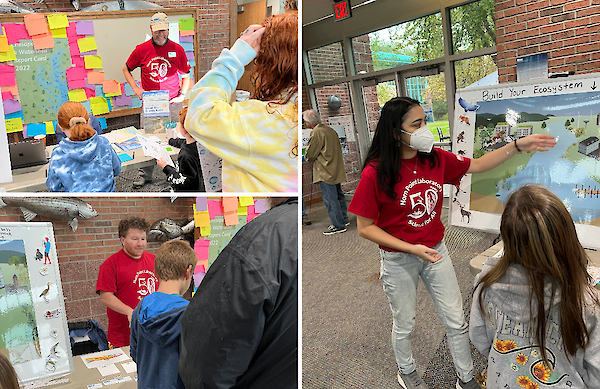
Saturday October 14th, IAN participated in the Horn Point Lab (HPL) Open House, the annual event where HPL invites the public to learn about the exciting research taking place on campus. The IAN booth consisted of two sections. In the first section, attendees got to play with symbols and diagrams from the IAN symbol library through sticker, coloring, and magnet activities. At the second section, IAN staff engaged attendees about the state of the Choptank River, using the latest edition of the Chesapeake Bay and Watershed Report Card to highlight the river's degradation and as a means to collect public opinions as to what is contributing to the Choptank's poor condition. Despite the rainy day, over 550 people came to the Open House to learn and explore what IAN and Horn Point at large have to offer.
Insights from the Choose Clean Water Conference
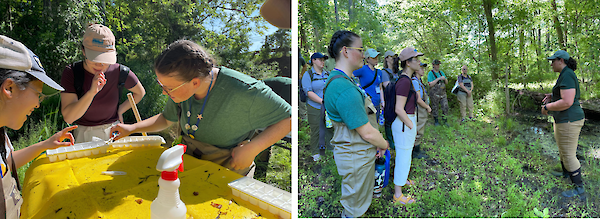
Last month, Sidney Anderson, Ann Foo, and Nathan Miller attended the Choose Clean Water Conference in Ellicott City, Maryland. Each year, representatives from riverkeeper organizations, universities, environmental advocacy non-profits, and government agencies from around the Chesapeake gather to share new research, network, and exchange ideas over how everyone’s collective work can improve both the ecology of the Bay and the communities that live in its watershed. Plus it’s a chance for everyone to collect really cool swag! Sidney, Ann, and Nathan attended as the IAN contingent of the Chesapeake Monitoring Cooperative, which helps citizen scientists collect quality freshwater data in the Chesapeake tributaries. Their presentation, “Masters of Translation: Best Practices in Science Communication,” covered general principles of science communication and how to co-develop science communication products via stakeholder engagement. Attendees got the chance to practice their science communication skills during the presentation, as well through activities like “Conceptionary” and “Title Pursuit.”